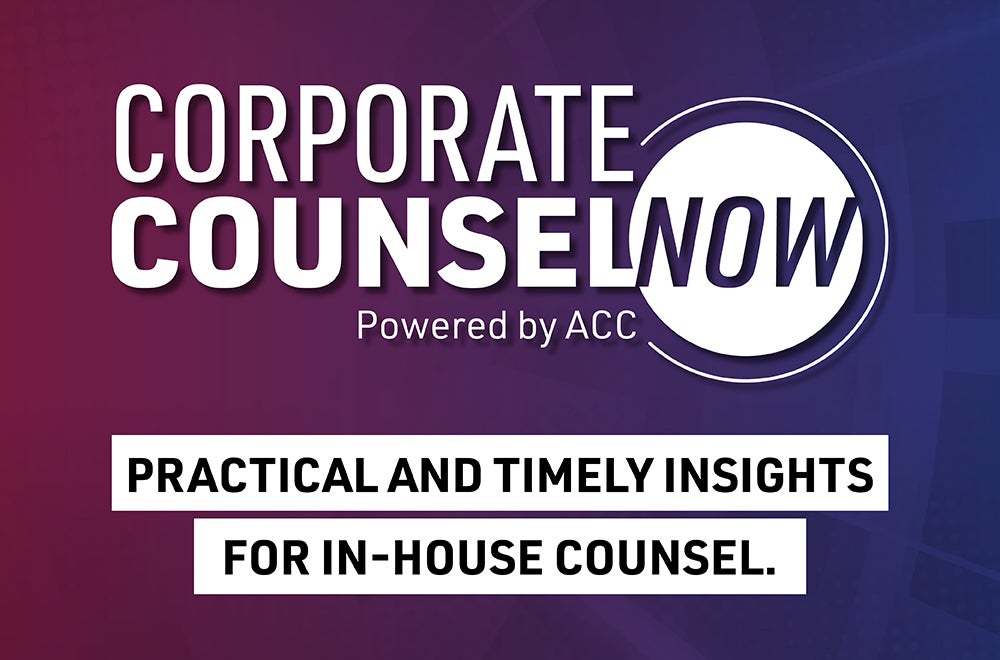Sara Garcia spent 30 years building her companies in London and Sydney, using psychology, research and behavioural economics to advise global companies like Nike, Coca Cola and Guinness how to influence consumers.
At 23, she published her first academic paper on the relationship between employment and mental health, and at 32, gained a UK government accreditation (Investors in People) by tying performance to corporate purpose.
She now trains leadership teams in organisations such as WPP and Arnott’s in increasing influence and strengthening collaborative relationships to get better results.
We interviewed Sara and asked her a few questions about her upcoming workshop 'From lawyer to leader – the fundamentals of positioning yourself for leadership effectiveness' in Sydney on 27 February.
- What do you see as the greatest challenges legal leaders will have in 2020?
Business is changing. In-house counsel needs to drive profitable action, not just deliver knowledge. CEOs are not interested in 'no'. They want to know 'how can we...?' And further more they want the legal function to provide opportunity and advantage, not just reduce risk. This is a big ask for Legal. Legal function is upgrading with loss of jobs at the lower end and increase in jobs at the top end. Any general counsel needs to ensure the team is working at the top of their game. But the biggest challenge of all is, as Dr Larry Richard, a specialist on the minds of lawyers, noted in his 2016 research, lawyers score very low on openness to change. Due to the exacting work they do and their responsibility regarding corporate risk, they tend to be highly skeptical, autonomous, and sensitive to criticism and with that comes a natural tendency to be risk averse. He says lawyers tend to focus on what could go wrong as opposed to what could go right, and they are afraid of being criticised if something does go wrong.
All this means that the evolution to being business strategists and solution providers will require supported behaviour in the workplace. It’s not just a skill, it’s a culture change – but it needs to happen.
- What is the number one skill a new manager should master?
People. A McKinsey study in 2016 forecast a 24% increase in the number of hours we’ll spend using social and emotional skills by 2030. This is because we’ll need to do more collaborating and influencing. Start with the insight that others are not like you and not necessarily motivated by the things/words/behaviours that you are. Take the time and interest to identify what works for them. For example, do they need lots of check-ins or few? If you yourself are someone who needs lots of check-ins, how are you going to manage that in the case of a team member who is demotivated by being excessively overseen?
- What is the biggest mistake new managers of legal teams make?
Managing not leading. As I’ve mentioned, micromanagement is disempowering for most of us. It comes from the mistaken idea that leaders need to control everyone. We don’t. Leaders need to lead, though often from behind. We need to provide opportunity for others to shine, empowering behind the scenes so they can grow.
The biggest shift is the one from task to responsibility. Managers manage tasks. Leaders facilitate responsibilities and those responsibilities stem from having a clear purpose – a reason why the team exists.
49% of employees would trade a portion of their salary to continue in their current role with an added sense of purpose.
LinkedIn Study 2016
Does everyone understand why they’re doing what they are doing? Not just a ‘what’ eg ‘to provide x with y’, but a bigger vision for the company? Does everyone know how they are contributing to that purpose and are they acknowledge and rewarded for it? A motivating purpose gives them not only clear direction but room to evolve in a useful way, room to grow, create, expand and become even more useful to the business – within the parameters of the bigger purpose. Can the role of Legal move beyond risk management? It would seem that CEO’s and corporate directors would want it to. Is it time to consider a more empowering purpose for Legal? Perhaps one involving opportunity not just risk? That would definitely open up growth opportunities for in-house counsel.
79% OF CORPORATE DIRECTORS THOUGHT THAT BY 2030 THE BEST USE OF
LEGAL WOULD BE ACTING AS AN ADVISER TO THE BOARD.
37% SAID RISK ANALYSIS EXPERTISE
New York Stock Exchange Study 2016
My hope is that the new generation of leaders in in-house counsel will take on these challenges. I see my job as training and coaching them to help them lead the profession into the new age.
2-for-1 special member offer:
Register two ACC Australia members from the same organisation and receive two registrations for the price of one.
Use code: 2FOR1PD at time of registration.


